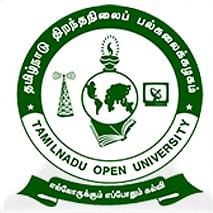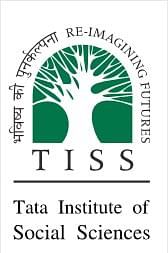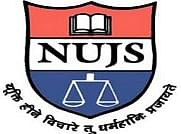Introduction About MBA Course
MBA, short for Master of Business Administration from India’s top University, is a prestigious and highly sought-after graduate degree
program that focuses on developing the skills and knowledge necessary for individuals
to excel in various managerial and leadership roles within the business world.
Here's an introduction to the MBA course:
Ø Core Business
Disciplines: MBA programs cover a wide range of core business disciplines,
including:
Ø Finance:
Financial management, investments, corporate finance.
Ø Marketing:
Market analysis, branding, advertising, consumer behavior.
Ø Management:
Organizational behavior, strategic management, leadership.
Ø Operations:
Supply chain management, project management, operations strategy.
Ø Human
Resources: Talent management, recruitment, performance evaluation.
Ø Entrepreneurship:
Business planning, startup management, venture capital.
Ø Specializations: Many MBA
programs offer students the opportunity to specialize in a specific area of
business to deepen their expertise and tailor their education to their career
goals. Common specializations include:
Ø Finance
Ø Marketing
Ø Human
Resource Management
Ø Entrepreneurship
Ø Operations
Management
Ø International
Business
Ø Information
Technology Management
Ø Healthcare
Management
Ø Experiential
Learning: MBA programs often incorporate experiential learning opportunities
such as case studies, simulations, consulting projects, internships, and study
abroad programs. These experiences allow students to apply theoretical concepts
to real-world business challenges and develop practical skills.
Ø Networking
Opportunities: MBA programs provide ample networking opportunities through
interactions with classmates, alumni, faculty members, guest speakers, industry
professionals, and participation in business events, conferences, and
workshops. Building a strong professional network is invaluable for career
advancement and opportunities.
Ø Global Perspective: With the
increasing globalization of business, many MBA programs emphasize international
business topics and offer opportunities for international exposure through
study tours, exchange programs, and collaborations with international
institutions. Students gain a broader understanding of global business trends,
cultures, and practices.
Ø Career Advancement: An MBA
degree can significantly enhance career prospects and open doors to leadership
positions, higher salaries, and opportunities for professional growth and
advancement. Many employers prefer candidates with MBA qualifications for
managerial and executive roles in various industries and sectors.
Ø Flexible Formats: MBA
programs are available in various formats to accommodate the needs of working
professionals, including full-time, part-time, executive, online, and blended
formats. Students can choose the format that best fits their schedule,
lifestyle, and career aspirations.
Ø Alumni Network: MBA
graduates become part of a global alumni network of business professionals who
provide support, mentorship, and career opportunities throughout their careers.
The alumni network is a valuable resource for networking, job hunting, and
lifelong learning.
Ø Overall,
the MBA course equips students with the knowledge, skills, and networks needed
to succeed in the complex and competitive business environment, preparing them
for leadership roles and making a positive impact in the business world.
What is the
process to take admission at MBA ?
The admission process at the best and affordable MBA college are as follows :
§ Research Programs: Start by researching MBA programs to find ones that align with your
interests, career goals, and preferences. Consider factors such as program
format (full-time, part-time, online, executive), location, accreditation,
curriculum, faculty, and reputation.
§ Check Admission Requirements: Review the admission requirements for each program
you're interested in. Common requirements may include a bachelor's degree from
an accredited institution, a minimum GPA, standardized test scores (such as the
GMAT or GRE), professional work experience, letters of recommendation, a resume
or CV, and a statement of purpose or essays.
§ Prepare for Standardized Tests: If required, prepare for and take standardized
tests such as the Graduate Management Admission Test (GMAT) or the Graduate
Record Examination (GRE). Some MBA programs may accept either test, while
others may have a preference for one over the other. Be sure to check the
specific requirements of the programs you're applying to.
§ Gather Required Documents: Collect all required application materials,
including transcripts from all previous academic institutions attended,
standardized test scores, letters of recommendation, your resume or CV, and any
required essays or statements of purpose.
§ Complete the Application Form: Fill out the online application form for each MBA
program you're applying to. This typically involves providing personal
information, educational background, work experience, test scores, and other
relevant details. Pay close attention to instructions and deadlines.
§ Write Essays or Personal Statements: Many MBA programs require applicants to submit
essays or personal statements as part of the application process. These essays
may ask you to discuss your career goals, leadership experiences, reasons for
pursuing an MBA, and how the program aligns with your aspirations.
§ Obtain Letters of Recommendation: Request letters of recommendation from individuals
who can speak to your academic abilities, professional accomplishments,
leadership potential, and character. Choose recommenders who know you well and
can provide meaningful insights into your qualifications for the MBA program.
§ Submit Application Materials: Once you've completed all application materials,
submit them before the deadline specified by each program. Be sure to
double-check that you've included all required documents and information.
§ Interview (if applicable): Some MBA programs may require applicants to
participate in an interview as part of the admission process. If invited,
prepare for the interview by researching the program, practicing common
interview questions, and articulating your motivations and goals for pursuing
an MBA.
§ Wait for Admission Decisions: After submitting your application, wait for
admission decisions from the MBA programs to which you've applied. Admission
decisions may be communicated via email, mail, or through an online portal. If
admitted, carefully review acceptance letters and any accompanying materials
regarding next steps, such as enrollment deadlines and financial aid
information.
Duration of MBA Course :
The duration of an MBA (Master of Business
Administration) from our university is as follows :
ü
Full-time MBA: Typically lasts for
two years, although some accelerated programs may be completed in 12 to 18
months.
ü
Part-time MBA: Can take anywhere from
two to five years to complete, depending on the student's pace and the
structure of the program.
ü
Executive MBA (EMBA): Designed for
working professionals and usually completed on a part-time basis while working
full-time. EMBA programs often take around 18 months to two years to finish.
ü
Online MBA: Duration varies widely,
but many online MBA programs are designed to be flexible, allowing students to
complete the program at their own pace. This can range from 18 months to
several years.
ü
It's important for prospective MBA
students to research the specific program they are interested in to understand
its duration and requirements.
Syllabus of MBA
The syllabus of an MBA (Master of Business Administration) program can
vary depending on the university, college, or business school offering the
program. However, syllabus of universityfindo:
o Core Courses:
o Financial
Accounting
o Managerial
Accounting
o Corporate
Finance
o Financial
Management
o Marketing
Management
o Operations
Management
o Human
Resource Management
o Strategic
Management
o Business
Ethics
o Organizational
Behavior
o Managerial
Economics
o Quantitative
Methods for Management
o Specialization
Courses: MBA programs often offer students the opportunity to specialize in a particular
area of business based on their interests and career goals. Some common
specializations include:
o Finance:
Advanced Corporate Finance, Investment Analysis, Financial Risk Management.
o Marketing:
Consumer Behavior, Brand Management, Marketing Strategy.
o Human
Resource Management: Talent Management, Compensation Management, Organizational
Development.
o Operations
Management: Supply Chain Management, Quality Management, Project Management.
o Entrepreneurship:
New Venture Creation, Business Plan Development, Innovation Management.
o Information
Technology Management: IT Strategy, Data Analytics, Digital Transformation.
o Elective Courses:
o Students
may have the option to choose elective courses based on their interests or to
further specialize in a particular area. Elective topics may include:
o International
Business
o Leadership
and Change Management
o Negotiation
and Conflict Resolution
o Sustainable
Business Practices
o Strategic
Marketing
o E-commerce
and Digital Marketing
o Business
Analytics
o Healthcare
Management
o Capstone Project:
o Many MBA
programs require students to complete a capstone project or a thesis in their
final semester. This project typically involves conducting research, analyzing
data, and presenting findings on a relevant business topic or case study.
o Experiential
Learning:
o MBA
programs often incorporate experiential learning opportunities such as case
studies, simulations, consulting projects, internships, and study abroad
programs. These experiences allow students to apply theoretical concepts to
real-world business challenges and develop practical skills.
o Soft Skills
Development:
o In
addition to technical knowledge, MBA programs also focus on developing soft
skills such as communication, leadership, teamwork, problem-solving, critical
thinking, and decision-making abilities. These skills are essential for success
in managerial and leadership roles.
It's important to note that the specific courses and structure of the
MBA syllabus may vary from one institution to another. Students should consult
the curriculum provided by their respective universities or business schools
for detailed information about the courses and requirements of their MBA
program, including any additional components such as internships, global
immersions, or leadership development programs.
Scope After MBA
The scope after completing an MBA from the top college of India
is broad and diverse, as the degree equips graduates with a range of skills and
knowledge that are highly valued in the business world. Here are some potential
career paths and opportunities available to MBA graduates:
v Management
Positions: MBA graduates often pursue careers in management, where they can lead
teams, departments, or entire organizations. They may work in various
industries such as finance, marketing, operations, human resources, consulting,
or technology.
v Entrepreneurship: Many MBA
graduates choose to start their own businesses or ventures. The skills and
knowledge acquired during an MBA program can be invaluable for launching and
managing a successful startup.
v Consulting:
Management consulting firms often recruit MBA graduates for their
problem-solving abilities, analytical skills, and business acumen. Consultants
work with clients to identify and solve complex business challenges.
v Finance and
Investment Banking: MBA graduates with a specialization in finance
often pursue careers in investment banking, corporate finance, asset
management, or private equity. They may work for financial institutions,
investment firms, or multinational corporations.
v Marketing and Brand
Management: MBA graduates with a focus on marketing can pursue careers in brand
management, product marketing, market research, advertising, or digital
marketing. They help companies develop and implement effective marketing
strategies to reach target audiences.
v Supply Chain and
Operations Management: MBA graduates with expertise in supply chain
management or operations management can work in roles such as supply chain
analyst, logistics manager, operations manager, or procurement specialist. They
focus on optimizing processes and improving efficiency within organizations.
v Human Resources
Management: MBA graduates specializing in human resources management can pursue
careers as HR managers, talent acquisition specialists, training and
development managers, or organizational development consultants. They play a
crucial role in recruiting, retaining, and developing talent within
organizations.
v International
Business: With globalization, there is a growing demand for MBA graduates with
expertise in international business. They may work for multinational
corporations, international organizations, or global consulting firms, managing
operations across different countries and cultures.
v These are
just a few examples of the many career paths available to MBA graduates. The
scope after an MBA is vast, and it ultimately depends on the individual's
interests, skills, and career goals. Additionally, networking, internships, and
professional development opportunities can further enhance job prospects and
advancement potential for MBA graduates.












